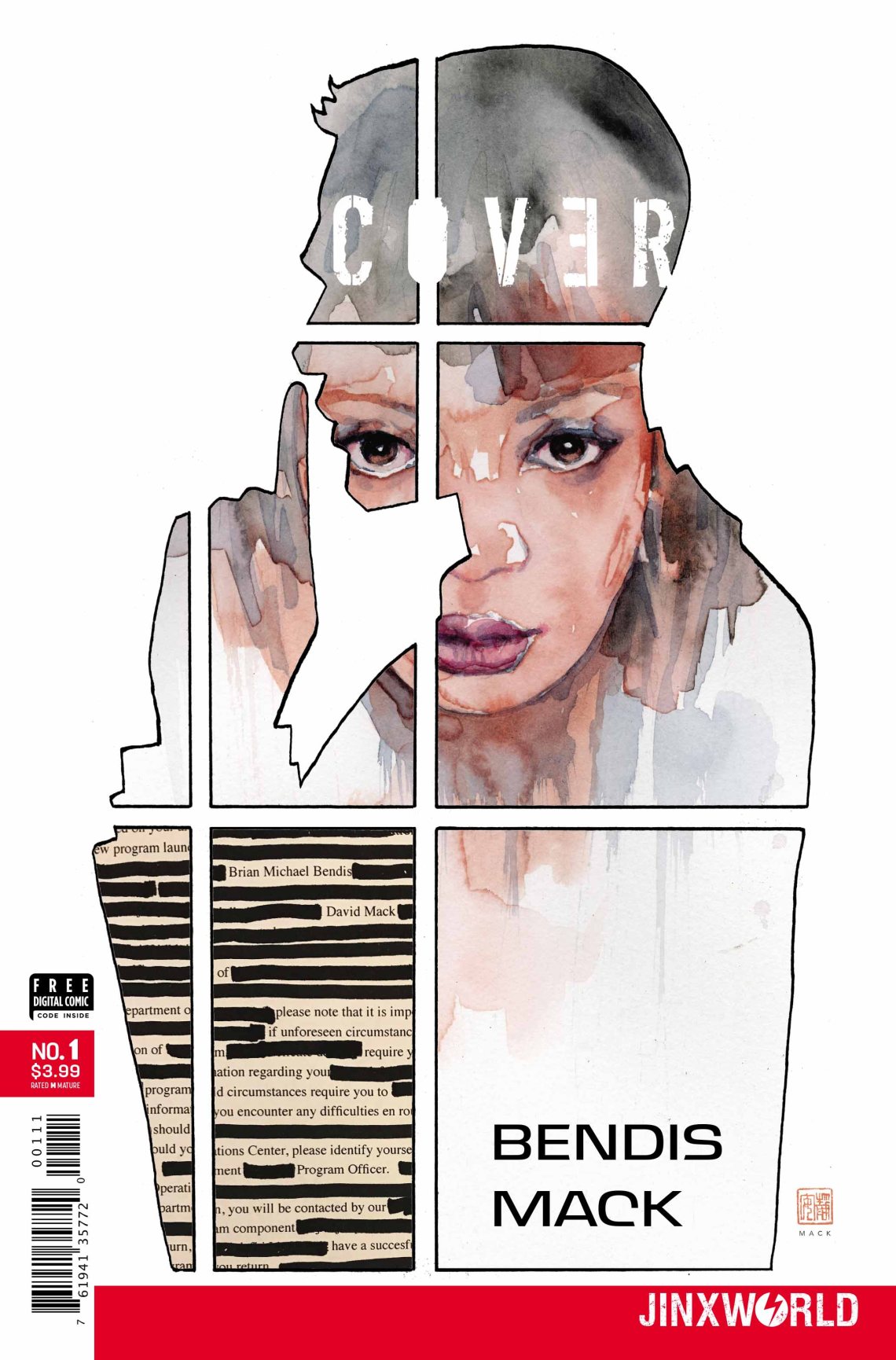By Brian Michael Bendis & David Mack
The latest and arguably most exciting to title arrive from Brian Michael Bendis’ creator-owned imprint under DC Comics, Jinxworld, finally arrives. Cover sets out to present the life of a comic creator and all that entails, professionally, personally, and covertly. The focus is on a comic artist, Max Field, who is just trying to work in the comic industry, but comes into contact with a mysterious fan, Julia. She begins almost stalking him, but there’s a more intricate agenda behind her actions because she’s an analyst for the CIA. This seems like the perfect book for these creators because they’ve been in the this industry for decades at this point and also have experience writing strong espionage stories.
What truly shines in this comic is David Mack’s work. hands down. That’s not to say Bendis doesn’t deliver the proverbial “goods” either, but he crafts a narrative that really allows Mack to do what he does best with his art and that’s be experimental in a way that properly services the material. This issue is a wonderful showcase of David Mack’s skills and talent. He’s a chameleon when it comes to visual art styles. Going through Cover issue one alone, there are several techniques and forms he implements and does so seamlessly and impressively. One of the most impactful sequences is the depiction of Field working on his comic in the forefront of the panels, sometimes in silhouette, while the background is comprised of the actual images he’s working on. It’s simply gorgeous.
Mack caters specific styles to specific scenes; there’s a significance and meaning behind everything. The presentation, color or even juxtaposition of panels may be a bit jarring at times, but that’s because these creators want readers to pay attention to that particular moment or action. At first glance, the book may not seem like there’s not a lot happening. The opening pages seem crudely rendered and have a muted color palette, but, again, there’s a rationale behind this decision. It’s the perspective of being a comic creator at a convention. Details and representations like this may seem myopic on the surface, but it’s personal. That’s what Cover is: personal.
Everything that unfolds in this issue is believable and the dailog feels completely natural, just as anyone would experience in their day-to-day life. This only furthers serve the personal nature of the comic Of course, though, it’s a comic, so there has to be some level of exaggeration of normal circumstances to sweeten the experience and that’s where the CIA comes into play. Bendis crafts a story that may appear mundane for the majority of the issue, but that’s because the life of a creator in this industry can be. They have to work long, usually solitary schedules to meet deadlines and also be social to promote their work online or in-person. Comic artists and writers have to juggle so many hats and adapt, just like spies. Making that correlation between the two worlds and blending them is an ingenious concept, one of those “why hasn’t this been done before” type premises. Honestly though, it’s not the spy elements that elevates the material, it’s the focus on the reality of the comics industry. It’s an area that hasn’t really been fully explored in its own medium. It almost feels appropriate to shine a light on this experience considering comics are no longer part of fringe culture, their mainstream.
Cover is a comic that, if left to the devices of its creators, has the potential to be a key highlight in the medium. It’s a showcase for both writer and artist to present not only their mastery of their respective craft, but the inner workings and, perhaps most importantly, the struggles of being a comic creator. Even with the themes and subtext, it serves its most basic function: being an engaging comic.





comments (0)
You must be logged in to post a comment.